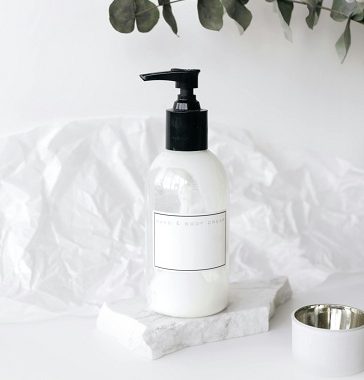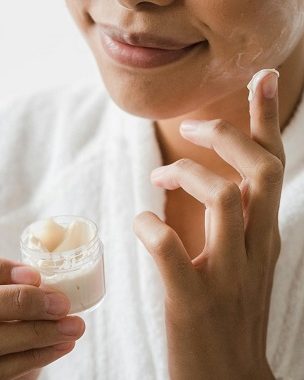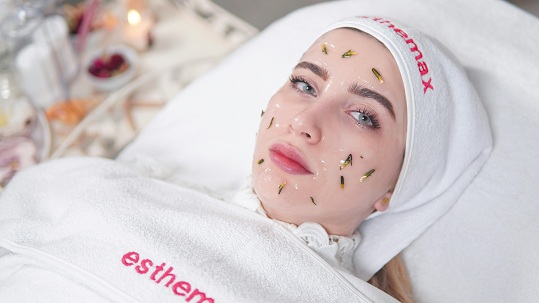
�
Acne, the perennial bane of many, can be a persistent and frustrating skin condition. Its onset can be mystifying, seemingly appearing out of nowhere, leaving one wondering,
“Why is my face breaking out all of a sudden?” However, what many fail to realize is that certain habits can exacerbate acne, complicating the quest for clear skin.
In this article, we delve into the intricacies of acne development and explore ten habits that may worsen acne, despite one’s best efforts with skincare routines and treatments.
Understanding Acne:
Before diving into the habits that can worsen acne, it’s crucial to grasp the fundamentals of this skin condition. Acne typically arises when hair follicles become clogged with oil and dead skin cells.
This environment provides a breeding ground for bacteria, leading to inflammation and the formation of pimples. While genetics and hormonal fluctuations play significant roles in acne development, external factors can also influence its severity.
Why Is My Acne Getting Worse in My 20s?
One common question that plagues many individuals is why acne seems to worsen during their 20s. This phenomenon can be attributed to various factors, including hormonal changes, increased stress levels, and lifestyle choices.
As individuals navigate the transition from adolescence to adulthood, hormonal fluctuations, particularly in women, can trigger acne flare-ups. Additionally, the stresses of work, relationships, and societal pressures can contribute to heightened cortisol levels, exacerbating acne symptoms.
The Myth of a Good Skincare Routine:
Despite diligently following a dermatologist’s advice on skincare for acne, it’s disheartening when breakouts persist. The reality is, skincare alone may not suffice. Dietary choices, stress levels, and environmental factors significantly impact skin health.
A diet high in sugar and dairy can exacerbate acne, while stress triggers hormone fluctuations that contribute to breakouts.
Environmental pollutants and allergens can also aggravate the skin. Understanding that skincare is just one piece of the puzzle empowers individuals to address holistic wellness, incorporating healthy lifestyle habits alongside effective skincare practices for optimal skin health.
10 Habits That Can Worsen Acne:
- Poor Diet: High-glycemic foods and dairy products have been linked to increased acne severity. Consuming excessive sugar and processed foods can spike insulin levels, leading to inflammation and acne flare-ups.
- Inadequate Hydration: Dehydrated skin is more prone to clogged pores and acne. Drinking an adequate amount of water helps maintain skin hydration and promotes the elimination of toxins.
- Overwashing: While cleanliness is important, overwashing the face can strip the skin of its natural oils, leading to dryness and increased oil production—a recipe for acne.
- Skipping Moisturizer: Individuals with acne-prone skin often shy away from moisturizers for fear of exacerbating breakouts. However, skipping moisturizer can compromise the skin’s barrier function, exacerbating inflammation and acne.
- Touching the Face: Habitually touching the face transfers bacteria, oil, and dirt onto the skin, increasing the risk of clogged pores and breakouts.
- Using Harsh Products: Harsh skincare products containing alcohol or fragrances can irritate the skin and disrupt its natural balance, triggering inflammation and acne.
- Not Changing Pillowcases: Pillowcases accumulate dirt, oil, and bacteria over time, which can transfer onto the skin, leading to breakouts, particularly on the cheeks where dry skin pimples often occur.
- Stress: Chronic stress can wreak havoc on the skin by increasing cortisol levels, stimulating oil production, and exacerbating inflammation—factors that contribute to acne.
- Overexfoliation: While exfoliation is beneficial for removing dead skin cells, overexfoliating can strip the skin’s protective barrier and cause irritation, inflammation, and acne.
- Ignoring Sun Protection: Sun exposure can exacerbate acne by triggering inflammation and post-inflammatory hyperpigmentation. Using sunscreen is crucial for protecting acne-prone skin and preventing further damage.
Acne-Prone Skin Treatment:
To effectively treat acne-prone skin, a comprehensive approach targeting both internal and external factors is indispensable.
This approach entails not only adopting healthy habits and avoiding behaviors that exacerbate acne but also incorporating dermatologist-recommended therapies tailored to individual needs.
Topical treatments play a crucial role in acne management. Retinoids, derivatives of vitamin A, work by promoting cell turnover, preventing the formation of new comedones, and reducing inflammation.
Salicylic acid, a beta-hydroxy acid, exfoliates the skin, unclogs pores, and has anti-inflammatory properties, making it effective for treating both comedonal and inflammatory acne.
Benzoyl peroxide, known for its antibacterial properties, kills acne-causing bacteria, reduces inflammation, and helps clear existing breakouts.
In cases of moderate to severe acne, oral medications may be prescribed. Antibiotics such as tetracycline or doxycycline target bacterial overgrowth and inflammation, helping to alleviate symptoms.
Isotretinoin, a powerful oral retinoid, is reserved for severe, treatment-resistant acne. It works by reducing oil production, preventing clogged pores, and addressing underlying factors contributing to acne development.
Consulting with a dermatologist is crucial for developing an effective treatment plan.
Dermatologists can assess the severity of acne, identify contributing factors such as hormonal imbalances or dietary triggers, and tailor a personalized approach that may involve a combination of topical and oral therapies.
Regular follow-up appointments allow for adjustments to the treatment plan based on individual response and ensure optimal outcomes in the management of acne-prone skin.
Best pimples treatment for face
How to Stop Pimples Coming on Face at Home:
Home remedies offer a convenient and often effective approach to prevent pimples and maintain clear skin. Gentle cleansing with a mild, non-comedogenic cleanser twice daily is essential to remove dirt, oil, and impurities without stripping the skin’s natural moisture barrier.
Following up with oil-free and non-comedogenic moisturizers and skincare products helps to hydrate the skin without clogging pores, reducing the risk of acne formation.
Additionally, applying topical treatments containing ingredients like benzoyl peroxide or salicylic acid can target existing pimples and prevent new ones from forming by unclogging pores and reducing inflammation.
Incorporating acne-fighting ingredients such as tea tree oil or aloe vera into skincare routines can provide soothing and antimicrobial benefits, helping to calm inflammation and prevent bacterial growth.
Furthermore, practicing stress-reduction techniques such as meditation, yoga, or deep breathing exercises can help manage cortisol levels, which are known to exacerbate acne.
By integrating these home remedies into a consistent skincare regimen and lifestyle routine, individuals can take proactive steps to stop pimples from appearing on their face and promote clearer, healthier skin naturally.:
��
Conclusion
With the right adjustments to your skin care routine, you can effectively manage and reduce acne. Following dermatologists’ tips and avoiding harmful habits will contribute to clearer, healthier skin for virtually everyone dealing with acne.
Further Reading:
Pimple popping: Why only a dermatologist should do it
What causes acne, and how do I treat it?
How to Prevent Acne & Pimples: 10 Tips to Avoid Breakouts
Top 6 Foods That Can Cause Acne
FAQs:
What habits can worsen acne?
Certain habits can exacerbate acne, undermining your efforts for clearer skin. Constantly trying new acne treatments, applying medication solely to visible blemishes, using makeup and skincare products that can cause breakouts, sharing makeup tools, sleeping in makeup, overwashing your face, drying out your skin, scrubbing vigorously, rubbing sweat during workouts, and succumbing to the temptation of popping or squeezing breakouts are habits that can worsen acne. Dermatologists emphasize the importance of breaking these habits to achieve effective acne management and promote a healthier complexion.
What are the top 10 causes of acne?
The top 10 causes of acne encompass various factors, including hormonal fluctuations, excess oil production, bacteria, inflammation, genetics, certain medications, diet, stress, environmental factors, and skincare and makeup products. Hormonal changes, particularly during puberty and menstruation, can trigger increased oil production and contribute to acne formation. Bacteria, specifically Propionibacterium acnes, plays a role in clogged pores and inflammation. Genetics can influence susceptibility to acne, while certain medications, high-glycemic diets, and stress may exacerbate breakouts. Environmental factors, such as pollution, and using comedogenic skincare or makeup products can also contribute to acne development. Understanding these causes is crucial for effective acne prevention and management.
Why is my skincare routine making my acne worse?
Your skincare routine may worsen acne due to various factors. Constantly trying new products or switching treatments too frequently can irritate the skin, leading to breakouts. Applying acne medication solely to visible blemishes may fail to prevent new breakouts. Some skincare, makeup, or hair care products contain ingredients that can clog pores and contribute to acne. Sharing makeup tools can transfer bacteria and oil, worsening breakouts. Sleeping in makeup, overwashing the face, and using harsh products can irritate the skin, exacerbating acne. It’s crucial to tailor your routine, use non-comedogenic products, and consult a dermatologist for personalized advice if your acne persists or worsens.
What makes face acne worse?
Face acne can worsen due to various factors. Overwashing the face can strip it of natural oils, leading to increased oil production and potential breakouts. Harsh scrubbing and using abrasive cleansers can irritate the skin, exacerbating acne. Applying acne medication only to visible blemishes may fail to prevent new breakouts. Using makeup, skincare, or hair care products with pore-clogging ingredients can contribute to acne. Stress, hormonal fluctuations, and a poor diet may also impact acne severity. Identifying and addressing these factors, along with adopting a suitable skincare routine, is crucial for managing and improving face acne.
What skincare products make acne worse?
Skincare products containing heavy oils, fragrances, and comedogenic ingredients can exacerbate acne. Harsh cleansers with high pH levels strip the skin’s natural oils, leading to increased oil production and breakouts. Alcohol-based toners can irritate and dry out the skin, triggering inflammation and acne flare-ups. Additionally, exfoliating products with abrasive particles or chemical exfoliants may cause micro-tears in the skin, worsening inflammation and acne. It’s essential to opt for non-comedogenic, oil-free, and gentle formulations specifically designed for acne-prone skin to avoid aggravating breakouts.
What bad habits cause acne?
Bad habits that can exacerbate acne include poor diet high in sugar and dairy, inadequate hydration, overwashing the face, skipping moisturizer, touching the face frequently, using harsh skincare products, and not changing pillowcases regularly. Additionally, stress, overexfoliation, and ignoring sun protection can worsen acne symptoms.
What makes face acne worse?
Several factors can exacerbate face acne, including hormonal fluctuations, stress, poor diet, excessive oil production, bacteria buildup, using harsh skincare products, and neglecting sun protection. These elements can contribute to clogged pores, inflammation, and bacterial growth, worsening acne symptoms. It’s essential to address these factors through a combination of healthy habits, dermatologist-recommended skincare routines, and targeted treatments to effectively manage and reduce acne breakouts on the face.
Can my skincare routine cause acne?
Yes, your skincare routine can potentially cause acne if it includes harsh products that strip the skin’s natural oils, leading to dryness and increased oil production. Over-exfoliation can also disrupt the skin’s barrier function, leading to irritation and inflammation. Additionally, using comedogenic or pore-clogging products can exacerbate acne by blocking pores and promoting the formation of blackheads and whiteheads. It’s essential to choose non-comedogenic, gentle products suitable for your skin type and to avoid overdoing it with exfoliation or harsh treatments. Consulting a dermatologist can help tailor a skincare routine that minimizes the risk of acne flare-ups.




Pingback: How To Stop Pimples Coming On Face At Home - Acnes derma relief
Pingback: What makes face acne worse - Acnes derma relief
Pingback: Dry Skin Pimples On Cheeks - Complete Guide - Acnes derma relief
Pingback: Acne-Prone Skin Treatment - Acnes derma relief
Pingback: Why Am I Still Breaking Out With A Good Skincare Routine? - Acnes derma relief
Pingback: Can My Skincare Routine Cause Acne - Acnes derma relief
Pingback: What Skincare Products Make Acne Worse? - Acnes derma relief